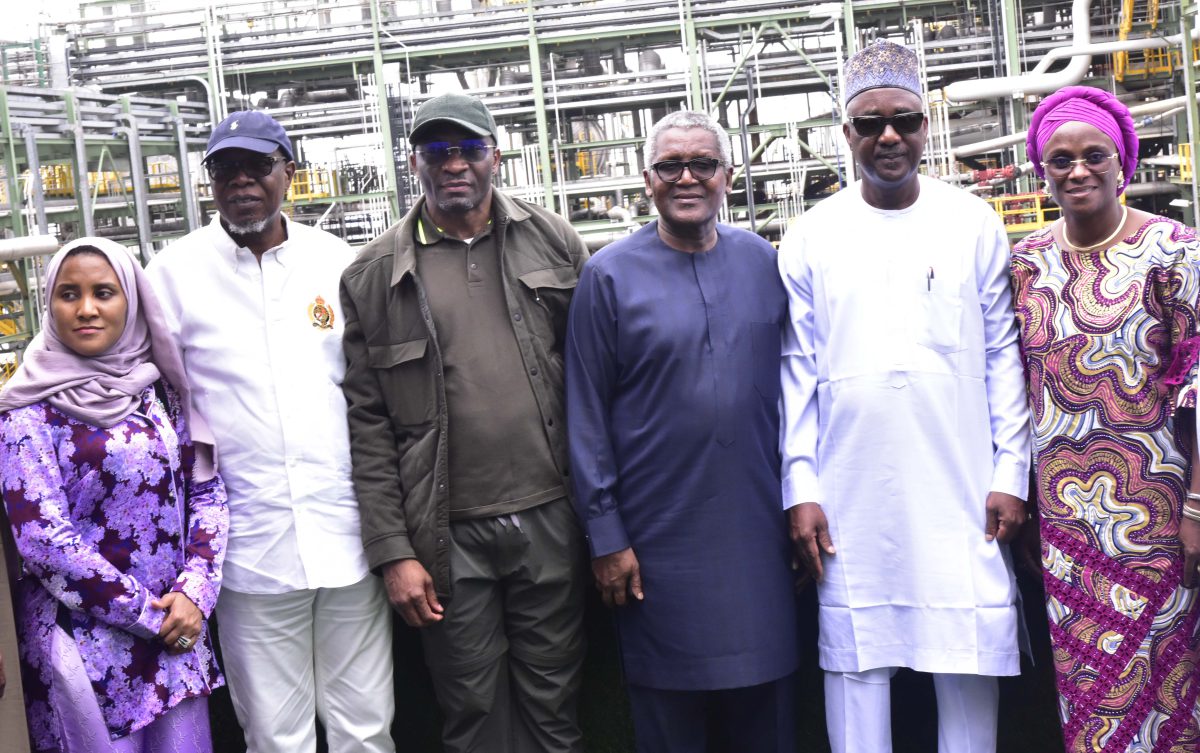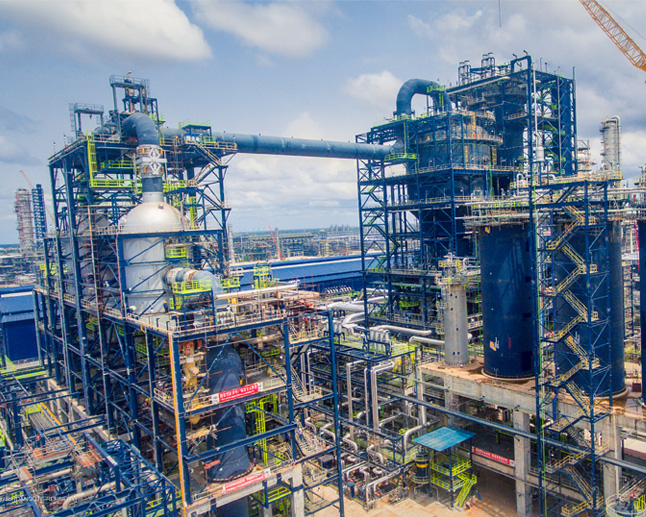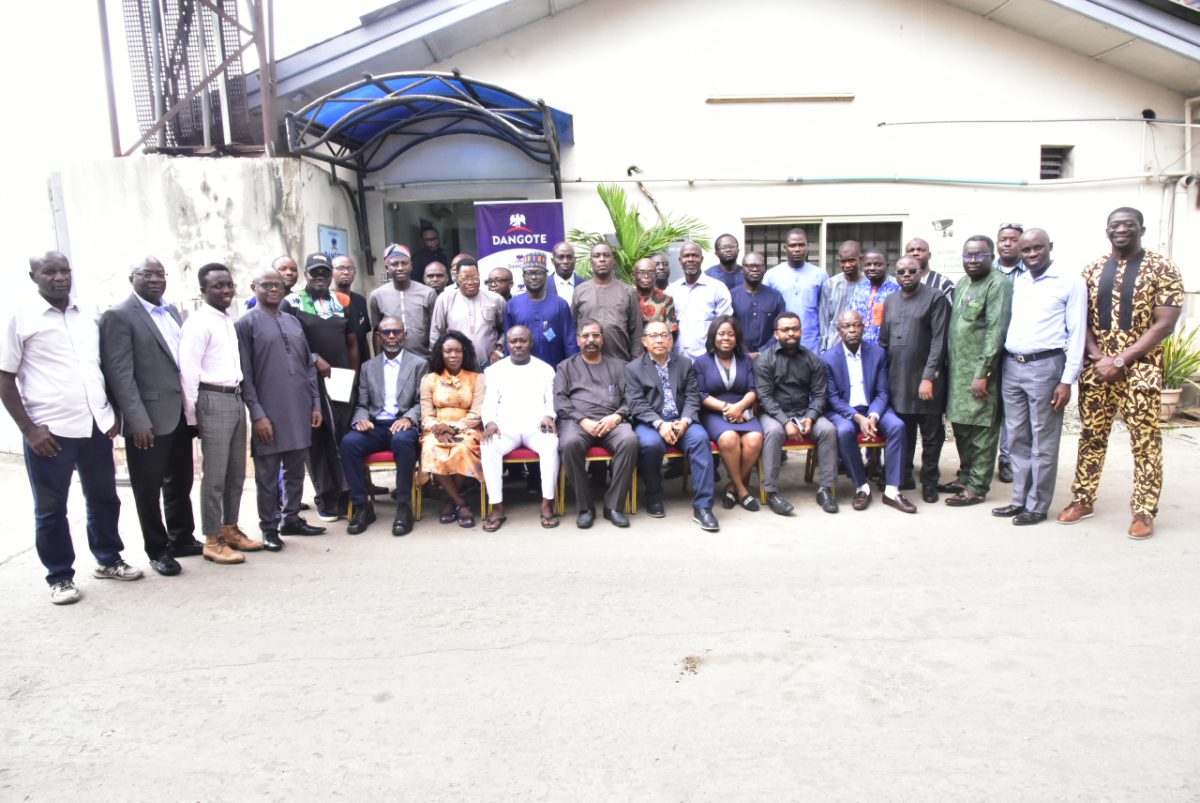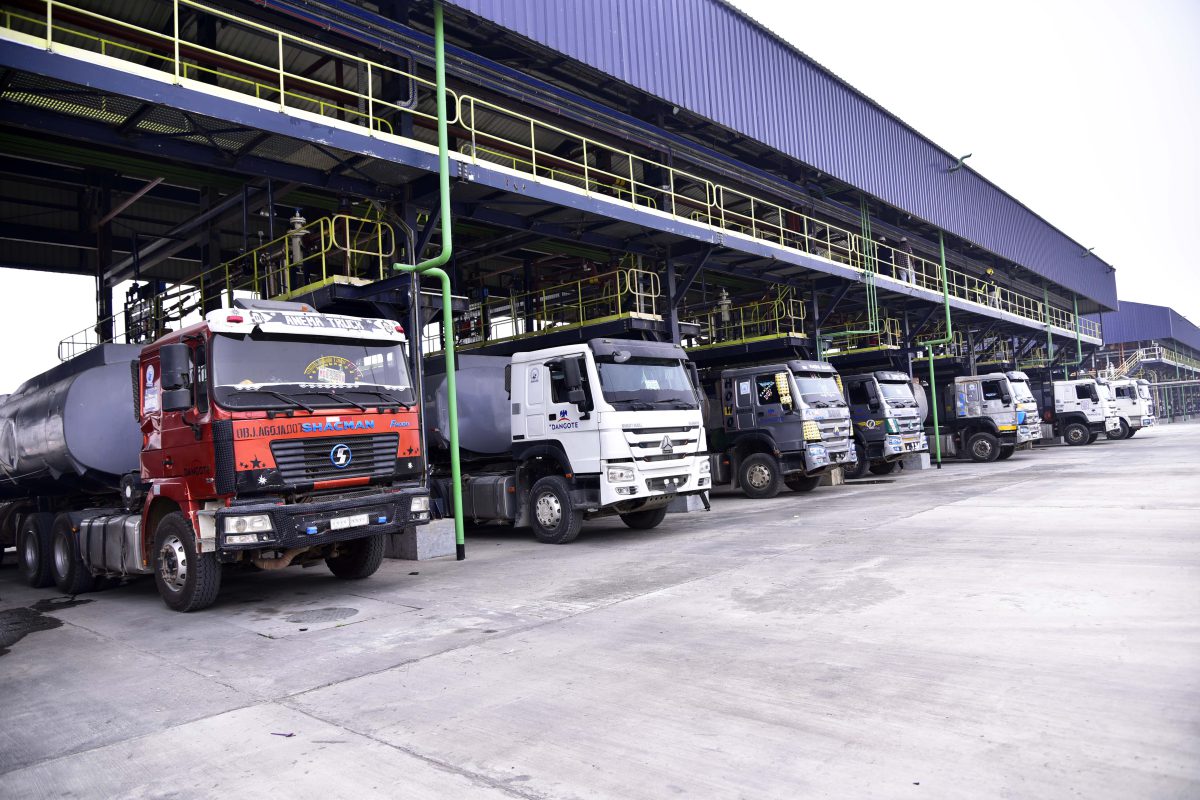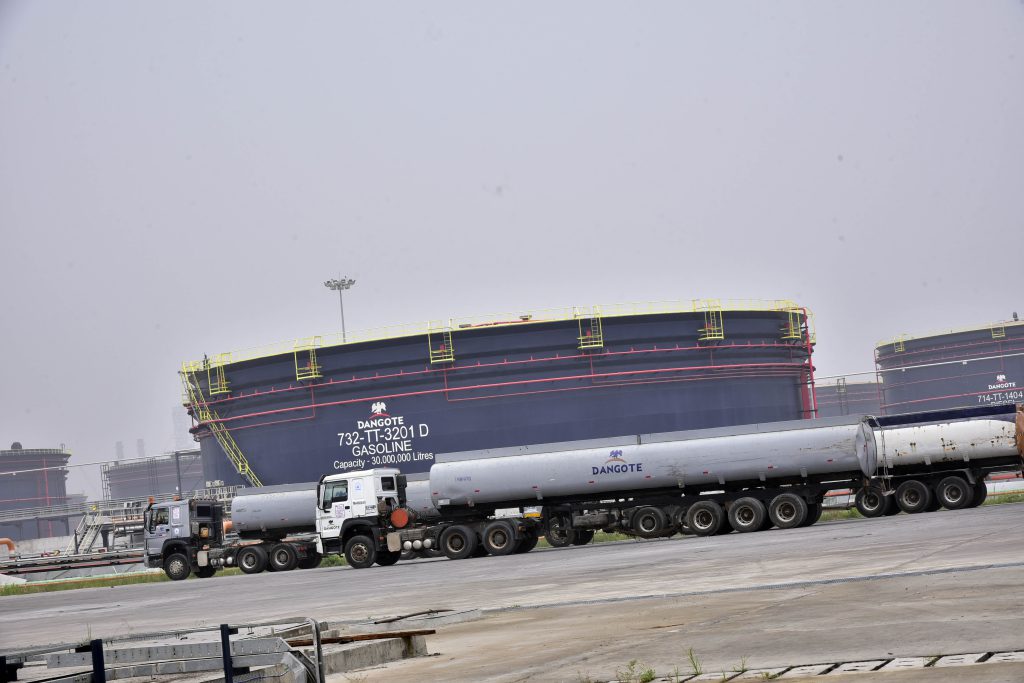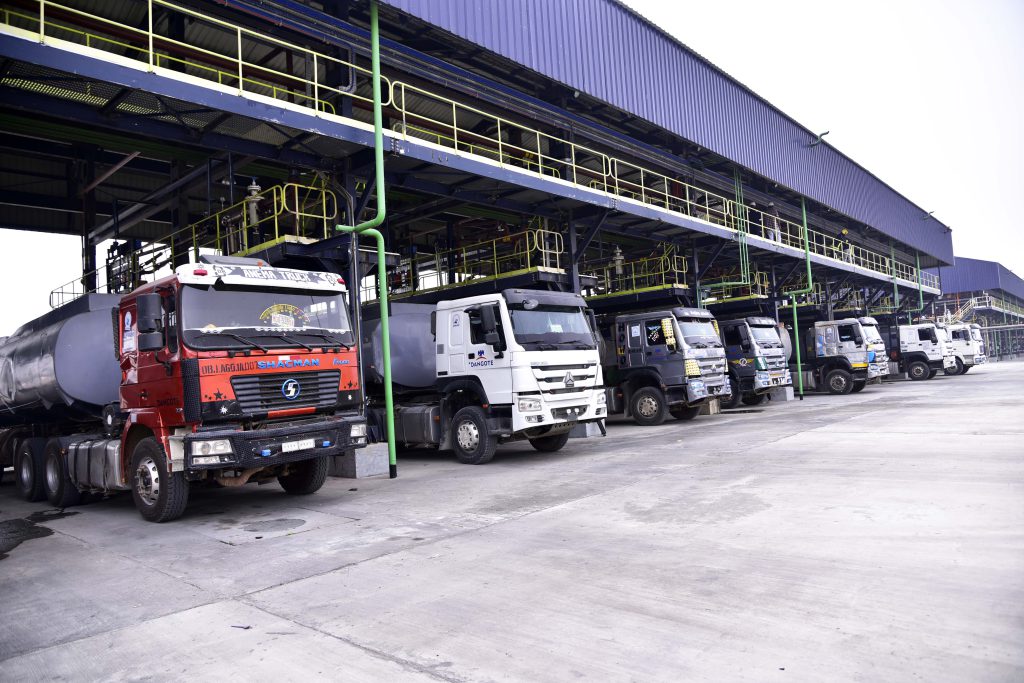…Urges National Assembly to test all available products from Standard laboratory to disclaim NMDPRA’s assertions
President of Dangote Group, Aliko Dangote, over the weekend revealed that Dangote Petroleum Refinery has continued to receive repeated orders for its products from all those who have purchased same since the commencement of production. The refinery has so far exported its products to some European countries, Singapore and offshore Lome.
Speaking during a tour of both Dangote Petroleum Refinery & Petrochemicals and the Dangote Fertiliser Limited complex by members of the House of Representatives, Dangote wondered why a regulatory authority like the Nigerian Midstream and Downstream Petroleum Regulatory Authority (NMDPRA) that should protect local industries is castigating the latter and even lying in media reports to justify the need to continue importation of dirty fuel into the country.
According to him: “I urge you to even set up a committee that will take samples at filling stations and take our own sample, because I must tell you that all the test certificates people are flaunting around are fake certificates. Where are the laboratories where those tests were conducted? By doing this, you will be able to tell Nigerians the very truth that they deserve to know. Demarketing of a company by a regulator that it is supposed to protect it, is very unfortunate.
“We didn’t know that you were going to ask us to stop by the road and take samples from other filling stations. I didn’t know what you wanted to do until we got here and you requested for a test. It is even good that it is your members that went directly to get our samples and I am sure you were shocked by the result. With the result, you can see that we produce the best diesel in Nigeria.”
Dangote openly challenged the regulator (NMDPRA) to compare the quality of refined products from his petroleum refinery with those imported, while advocating for an impartial assessment to determine what best serves the interests of Nigerians. “We produce the best diesel in Nigeria. It is disheartening that instead of safeguarding the market, the regulator is undermining it. Our doors are open for the regulator to conduct tests on our products anytime; transparency is paramount to us. It would be beneficial for the regulator to showcase its laboratory to the world so Nigerians can compare. Our interest is Nigeria first because if Nigeria doesn’t grow, we have limited capacity for growth.
“Right Honourable Speaker and esteemed members, you have witnessed the results of the credibility test. I appreciate your wise counsel in procuring samples from the filling stations alongside our refinery’s product. Ours shows a sulphur content of 87.6 ppm, approximately 88, whereas the others exceeded 1,800 ppm. Although the NMDPRA permits local refiners to produce diesel with sulphur content up to 650 ppm until January 2025, as approved by ECOWAS, ours is significantly lower. Next week, we aim to achieve 10 ppm, aligning with the Euro V standard. Imported diesel is capped at 50 ppm, but as you have seen, those from the stations, imported by major marketers, fall well outside this standard,” Dangote observed.
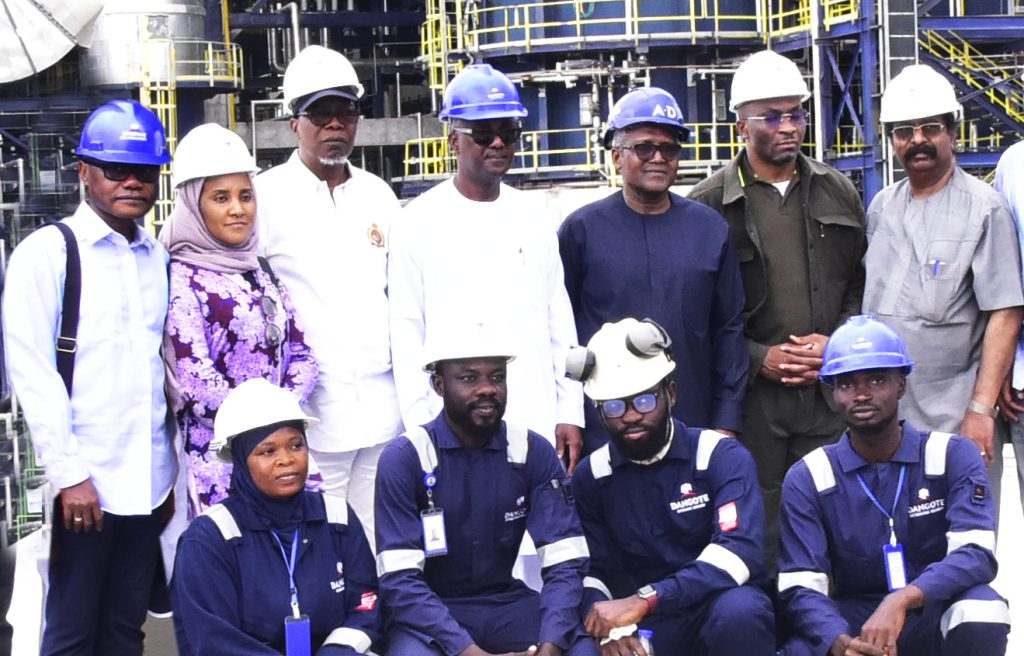
He pointed out that high-sulphur content diesel regularly imported into the country often comes with dubious certifications. He emphasised that the most effective method to verify the quality is to purchase the product directly from filling stations and conduct credibility tests. According to him, this issue has resulted in both health risks and financial losses for Nigerians.
“Dubious certifications often accompany the importation of high-sulphur diesel into Nigeria, causing both health risks and financial losses for Nigerians,” noted Dangote. “The best method to verify this is to purchase the product directly from filling stations where end-users obtain it. I believe Farouk Ahmed (Chief Executive of NMDPRA) speaks without sufficient knowledge of our refinery. We have successfully exported diesel and jet fuel to Europe and Asia without any complaints; in fact, we have received repeated orders, indicating satisfaction with our products.”
Supporting Dangote’s assertion, Vice President of Gas and Oil at Dangote Industries Limited, Devakumar Edwin, highlighted recent actions by European countries like Belgium and the Netherlands. “These countries have expressed concerns about the carcinogenic effects of high-sulphur diesel being dumped into the Nigerian market, prompting them to impose bans on such fuel exports to West Africa”, he said.
Edwin informed the visiting federal lawmakers that the Dangote Petroleum Refinery, designed to process a wide range of crudes including various African and Middle Eastern crudes, as well as US Light Tight Oil, conforms to Euro V specifications. In addition, he said, it is designed to comply with US EPA (United States Environmental Protection Agency), European emission norms, Department of Petroleum Resources (DPR) emission/effluent norms, and the African Refiners and Distribution Association (ARDA) standards.
Noting that products from the $20 billion facility are of high quality which meet international standards, Edwin said it has the capacity to meet 100% of Nigeria’s demand for petrol, diesel, kerosene, and aviation Jet, with surpluses available for export.
The Group’s Vice President, Olakunle Alake, expressed disappointment over accusations of monopoly against the Dangote Group. He stressed that there are multiple players in the industry, including the Nigerian National Petroleum Corporation (NNPC), which operates four refineries.
Expressing concern over the controversy surrounding the quality of imported refined products into Nigeria, the Reps Speaker, Rt. Hon. Abass stated that the Green Chamber would establish a committee to investigate the matter thoroughly. He emphasised that sampled products from various sources would undergo testing as part of this initiative.
The Speaker also expressed admiration for the infrastructure at the Dangote Oil Refinery, describing it as a significant asset in Nigeria’s quest for self-sufficiency in petroleum products. He noted that the refinery has positioned itself as a pivotal player, especially at a time when global concerns over energy security and sustainability are paramount.
“Today’s visit to the magnificent facilities of Dangote Industries Oil Refinery section has been nothing short of enlightening. It has afforded us a rare opportunity to witness first-hand the monumental strides that your organisation has made in transforming the landscape of petroleum production in Nigeria. The sheer scale and sophistication of this facility are awe-inspiring; it stands as a beacon of hope for our country as we navigate through the turbulent waters of energy supply challenges,” he said.
Commending the state-of-the-art technology implemented at the petroleum refinery, Abbas praised it as revolutionary and a shining example of engineering and innovation excellence.
“Each corner of this facility resonates with the echoes of hard work, dedication, and an unyielding pursuit of quality. It is evident that every drop produced here carries not just oil but also the hopes and dreams of millions who yearn for a brighter future. We are deeply impressed by what we have seen during this visit which confirms the rating of this industry as the single largest oil refinery in Africa. This remarkable achievement does not merely reflect corporate success; it symbolises national pride, a tribute to what can be accompanied when visionary leadership meets relentless determination,” he said.
Acknowledging the numerous challenges likely encountered during the construction of the refinery, the Speaker lauded Dangote for his steadfast commitment to achieving excellence.
“I would like to take this opportunity to acknowledge the myriad challenges that have beset this remarkable facility. The regulatory hurdles that often loom like dark clouds over progress, the complexities surrounding crude oil supplies that can stifle even the most ambitious endeavours, and the daunting economic landscape we navigate especially in these times when our economy grapples with foreign exchange constraints, are all formidable adversaries. Yet, despite these tribulations, your unwavering commitment to excellence shines through,” he attested.
